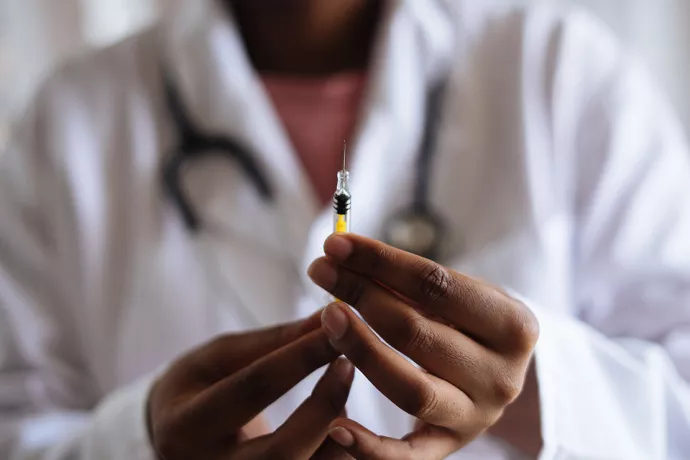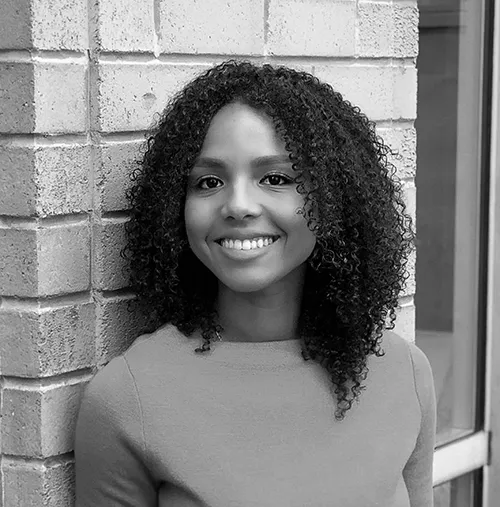
UTM professor explores vaccine hesitancy and suspicion in health care
Nicole Charles was still an undergraduate student when she became interested in vaccine hesitancy. At the time, she was studying the human papillomavirus (HPV) vaccine in Canada.
Now an assistant professor of Women and Gender Studies in the Department of Historical Studies at UTM, Charles continues to focus on reluctance related to the HPV vaccine. Her book, Suspicion: Vaccines, Hesitancy and the Affective Politics of Protection in Barbados is set to come out in December 2021.

“In this book, I'm contextualizing Black Barbadians’ hesitancy, which is vernacularized as ‘suspicion’ in Barbados within a much longer economic, cultural and socio-political history to really explore what is generative about suspicion,” Charles says in a recent interview on VIEW to the U podcast. “This is in contrast to how we often approach the topic of hesitancy in terms of what we can do to circumvent it.
“I'm really interested in what suspicion can teach us about public health, about care, about the promotion of biotechnologies to Black Caribbean communities, and in asking how might these really location-specific and vaccine-specific learnings not be bound to that place, but engender a critical dialogue and change within public health throughout, for example, the Black diaspora.”
Charles’s interest in this area of research grew because her mother was unsure about the HPV vaccine being administered to young women, particularly her daughters, when it was first introduced in 2006.
Charles went on to study the promotion of the HPV vaccine in Canada. She has expanded on the topic over the last 15 years, factoring in considerations such as gender, race, biotechnologies and care, with a focus on the Caribbean where Charles grew up. Barbados became a focal point for her because the HPV vaccine was introduced through a national program there in 2014, around the same time Charles started to conduct research for her dissertation.
Charles notes it’s important to understand that vaccine hesitancy is not the same as anti-vaccination ideology, which refers to outright opposition to vaccines. The anti-vaccination movement has become more widespread in recent years, fuelled by a retracted study published in 1998 by former British physician Andrew Wakefield, which falsely linked the measles, mumps and rubella (MMR) vaccine with autism.
“With the term vaccine hesitancy, we're thinking of a spectrum between complete refusal to acceptance amid ambivalence,” says Charles.
Charles says reasons for hesitancy can range from distrust in medical systems and pharmaceutical agendas, to religious concerns, or in the case of HPV in Barbados, “tropes around hypersexuality.”
The title of Charles’s forthcoming book Suspicion took on particular resonance for her: while conducting the study in Barbados she was confounded by her research participants’ suspicion for her and her motives, which she aimed to assure them was to better address public concern about vaccines and to improve public health promotion efforts.
While Charles says it is difficult to comment on vaccine hesitancy as it relates to the coronavirus because hesitation can be so vaccine specific, COVID-19 and its immunization issues have illuminated other areas of interest.
“We are well aware of the disproportionate devastation that this pandemic has had on Black, Indigenous, and people of colour, which directly speaks to the endemic racism that persists within the Canadian and American healthcare systems,” says Charles.
“We need to have these conversations about the ways that public health agencies, service providers, and our governments absolutely have more to do to challenge the racism and racist biases that underlie our medical systems, and, crucially, to build the trust of those who are most marginalized, … and really engaging with rather than dismissing a community's concerns about the vaccine, and seeking to overcome these concerns through accountability.”
More:
- Go to SoundCloud to hear the full VIEW to the U interview with Nicole Charles
- Examining vaccine 'hesitancy'
- To beat COVID-19, look to the past, says medical anthropologist
